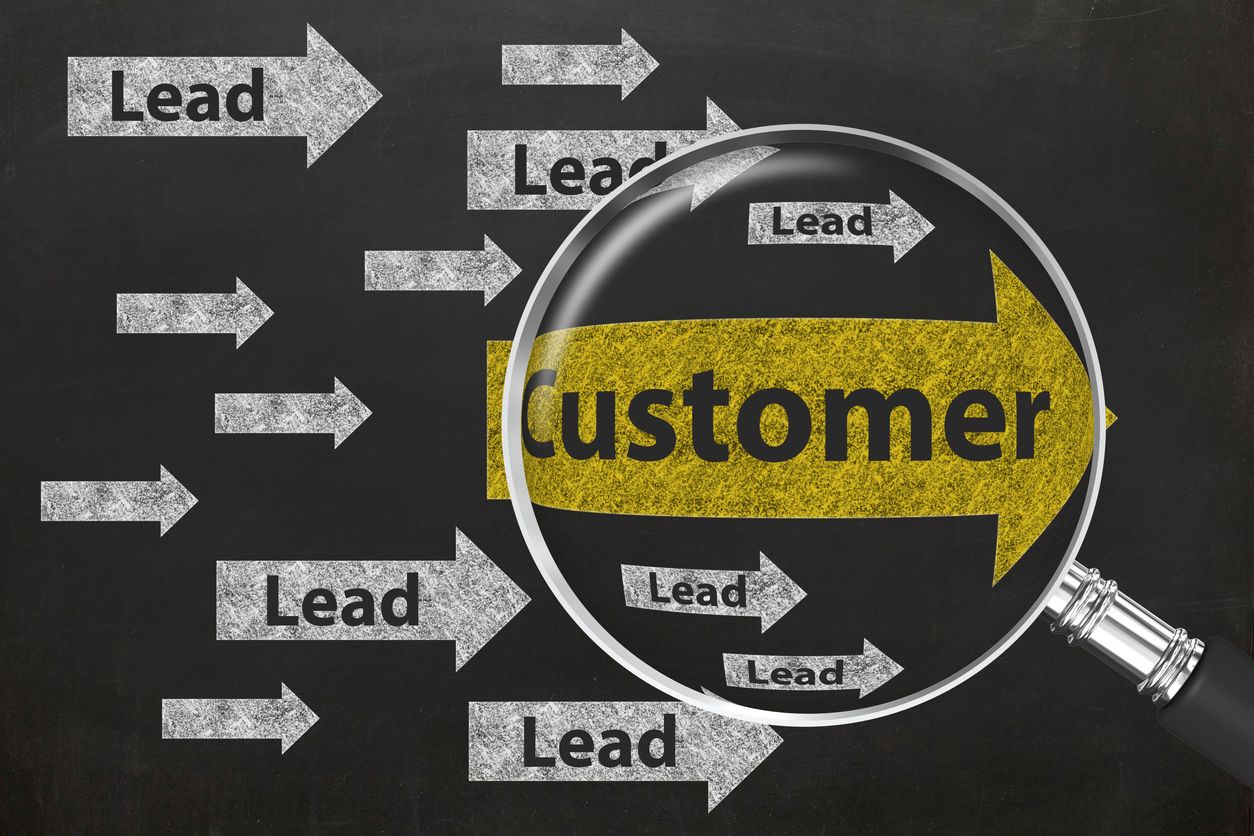What is an Ecommerce Manager?
An Ecommerce Manager is the linchpin that holds together the various elements of an online retail business, ensuring that the e-commerce platform not only functions efficiently but also achieves its sales targets and customer satisfaction goals.

In the ever-evolving world of digital commerce, the role of an Ecommerce Manager has gained unprecedented significance. As businesses increasingly shift their operations online, the need for skilled professionals who can navigate the complexities of e-commerce has become essential. An Ecommerce Manager is the linchpin that holds together the various elements of an online retail business, ensuring that the e-commerce platform not only functions efficiently but also achieves its sales targets and customer satisfaction goals.
Ecommerce Managers are responsible for a wide range of tasks, from managing online stores and implementing marketing strategies to analyzing data and optimizing user experiences. This role is especially crucial in a globalized market where competition is fierce and customer expectations are high. For businesses looking to succeed in this environment, understanding the role and importance of an Ecommerce Manager is key.
1. The Core Responsibilities of an Ecommerce Manager
The responsibilities of an Ecommerce Manager are multifaceted and require a deep understanding of both the technical and strategic aspects of online retail.
1.1 Managing and Optimizing Online Stores
One of the primary responsibilities of an Ecommerce Manager is to oversee the day-to-day operations of an online store. This includes ensuring that the website is user-friendly, visually appealing, and fully functional. The manager must regularly update product listings, manage inventory, and coordinate with suppliers to ensure that products are available and accurately represented on the website.

In addition to these tasks, the Ecommerce Manager is also responsible for optimizing the website’s performance. This involves analyzing user behavior, identifying bottlenecks in the purchasing process, and implementing changes to improve the overall user experience. For instance, if a business is using Shopify as its e-commerce platform, the Ecommerce Manager might work on enhancing the site’s speed, improving mobile responsiveness, or integrating new features that make it easier for customers to find and purchase products.
1.2 Developing and Implementing Marketing Strategies
Marketing is a critical component of any e-commerce business, and the Ecommerce Manager plays a central role in developing and executing marketing strategies. This includes everything from search engine optimization (SEO) and pay-per-click (PPC) advertising to email marketing and social media campaigns. The goal is to drive traffic to the online store and convert visitors into paying customers.

For example, an Ecommerce Manager might use tools like Taobao search or Taobao reverse image search to identify trending products and tailor marketing campaigns accordingly. They may also oversee the creation of content that resonates with the target audience, whether through blog posts, product descriptions, or social media updates. In some cases, the manager might work closely with influencers or affiliate marketers to broaden the reach of the brand.
1.3 Data Analysis and Reporting
Data-driven decision-making is at the heart of successful e-commerce management. Ecommerce Managers are responsible for collecting and analyzing data related to website traffic, customer behavior, and sales performance. This data provides valuable insights that can be used to optimize marketing campaigns, adjust pricing strategies, and improve overall business performance.

For instance, by analyzing data from tools like Google Analytics, an Ecommerce Manager can identify which marketing channels are driving the most traffic and which products are generating the highest conversion rates. They can then use this information to allocate resources more effectively and fine-tune their marketing strategies. Regular reporting on key performance indicators (KPIs) is also essential for tracking progress and making informed decisions.
2. Essential Skills for an Ecommerce Manager
To excel in their role, Ecommerce Managers need a diverse set of skills that encompass both technical expertise and strategic thinking.
2.1 Technical Expertise
A strong technical background is essential for any Ecommerce Manager. This includes a deep understanding of e-commerce platforms like Shopify, WooCommerce, or Magento, as well as familiarity with various content management systems (CMS) and customer relationship management (CRM) tools. In addition, Ecommerce Managers must be proficient in using data analytics tools such as Google Analytics, SEMrush, and Ahrefs to track performance and identify areas for improvement.

For example, an Ecommerce Manager working with Shopify might need to understand how to integrate third-party apps, manage product feeds, or set up automated workflows. Similarly, if the business is involved in 1688 dropshipping or Taobao dropshipping, the manager must be familiar with the technical requirements and logistics involved in these processes.
2.2 Marketing Acumen
In addition to technical skills, an Ecommerce Manager must also possess strong marketing acumen. This includes a deep understanding of digital marketing strategies such as SEO, PPC, content marketing, and social media marketing. The ability to craft compelling marketing messages and create engaging content is crucial for attracting and retaining customers.

Moreover, Ecommerce Managers must be adept at analyzing market trends and customer behavior. This requires staying up-to-date with the latest developments in the e-commerce industry and leveraging tools like Taobao image search or picture search Taobao to gain insights into consumer preferences. By understanding what drives customer engagement, the manager can develop targeted marketing campaigns that resonate with the audience.
2.3 Management and Communication Skills
Ecommerce Managers often work with cross-functional teams that include marketing specialists, designers, developers, and customer service representatives. As such, strong management and communication skills are essential for coordinating these efforts and ensuring that everyone is working towards the same goals.

Effective communication is also critical when dealing with external partners such as suppliers, logistics providers, and marketing agencies. The Ecommerce Manager must be able to clearly articulate the company’s needs and expectations, as well as negotiate favorable terms with these partners. In some cases, the manager may also act as a liaison between the business and its customers, addressing any concerns or issues that arise.
3. How an Ecommerce Manager Drives Business Growth
The ultimate goal of an Ecommerce Manager is to drive business growth by optimizing the online store’s performance and maximizing sales. This requires a strategic approach that combines technical expertise, marketing savvy, and data-driven decision-making.
3.1 Enhancing User Experience to Increase Conversion Rates
One of the key ways an Ecommerce Manager can drive growth is by improving the user experience (UX) on the online store. A seamless and enjoyable shopping experience is crucial for converting visitors into customers and encouraging repeat business.

To achieve this, the Ecommerce Manager might focus on optimizing the website’s design, navigation, and checkout process. For instance, they might implement features such as one-click purchasing, personalized product recommendations, or live chat support to make the shopping experience more convenient and engaging. Additionally, the manager might conduct A/B testing to determine which design elements or marketing messages are most effective at driving conversions.
3.2 Leveraging Data for Informed Decision-Making
Data analysis plays a critical role in the success of an e-commerce business. By leveraging data-driven insights, an Ecommerce Manager can make informed decisions that directly impact the bottom line.

For example, the manager might analyze traffic sources to determine which marketing channels are driving the most valuable visitors to the site. They can then allocate marketing budgets more effectively, investing in the channels that offer the highest return on investment (ROI). Similarly, by analyzing customer behavior data, the manager can identify trends and preferences that can be used to optimize product offerings and pricing strategies.
3.3 Expanding into Global Markets
As businesses expand into global markets, the role of the Ecommerce Manager becomes even more crucial. Managing international e-commerce operations involves navigating a complex web of logistics, regulations, and cultural differences.

To succeed in this environment, the Ecommerce Manager must have a deep understanding of global logistics and supply chain management. This includes everything from sourcing products from platforms like 1688 shopping to coordinating with logistics providers for global shipping. The manager must also be familiar with the challenges of cross-border e-commerce, such as customs regulations, currency exchange, and international payment processing.
Leveraging platforms like BuckyDrop, which offers comprehensive e-commerce solutions, can be instrumental in overcoming these challenges. BuckyDrop provides a range of services, from product sourcing and manufacturing to global logistics tracking and supply chain sourcing, that can help businesses expand their reach and compete in international markets.
4. Why Choose BuckyDrop for Ecommerce Management?
BuckyDrop is a leading provider of e-commerce solutions that can help businesses streamline their operations and achieve their growth objectives. For Ecommerce Managers, BuckyDrop offers a range of tools and services that can enhance the efficiency and effectiveness of their online stores.
4.1 Comprehensive Ecommerce Solutions
BuckyDrop provides a one-stop solution for all e-commerce needs, from product sourcing to global logistics and supply chain management. This includes services such as 1688 dropshipping, Taobao dropshipping, and global logistics services that are designed to meet the unique needs of each business.
Whether you’re looking to source products from Chinese suppliers, manage international shipping, or integrate with platforms like Shopify or WooCommerce, BuckyDrop has the expertise and resources to support your business. By leveraging BuckyDrop’s comprehensive solutions, Ecommerce Managers can focus on growing their business without worrying about the complexities of logistics and supply chain management.
4.2 Advanced Technical Support
In addition to its comprehensive solutions, BuckyDrop offers advanced technical support that can help Ecommerce Managers optimize their online stores. This includes real-time data analytics, operational optimization tools, and integration support for popular e-commerce platforms.
For example, if you’re managing a Shopify store, BuckyDrop can help you integrate with 1688 dropshipping Shopify solutions, enabling you to source products directly from Chinese suppliers and manage your inventory seamlessly. Similarly, BuckyDrop’s technical support can help you implement tools like Taobao reverse image search or picture search Taobao to enhance your product offerings and stay ahead of market trends.
4.3 Customized Business Support
Every e-commerce business is unique, and BuckyDrop understands that one-size-fits-all solutions don’t always work. That’s why BuckyDrop offers customized business support tailored to the specific needs of each client.
Whether you’re a small business just starting out or a large enterprise looking to expand into new markets, BuckyDrop can provide the resources and expertise you need to succeed. This includes everything from sourcing specialists who can help you find the best products at the best prices to global logistics tracking solutions that ensure timely delivery to your customers.
5. Conclusion
The role of an Ecommerce Manager is more important than ever in today’s digital economy. As businesses continue to shift their operations online, the need for skilled professionals who can manage and optimize e-commerce platforms has never been greater. Ecommerce Managers are responsible for a wide range of tasks, from managing online stores and implementing marketing strategies to analyzing data and optimizing user experiences.
By leveraging their technical expertise, marketing acumen, and data-driven decision-making, Ecommerce Managers can drive business growth and ensure the success of online stores. And with the support of comprehensive solutions like those offered by BuckyDrop, Ecommerce Managers can achieve their objectives more efficiently, leading to sustained business success in the global market.
In a competitive and fast-paced industry, BuckyDrop’s tailored solutions, advanced technical support, and comprehensive e-commerce services make it an invaluable partner for any Ecommerce Manager looking to take their business to the next level. Whether you’re dealing with Taobao dropshipping, 1688 shopping, or global logistics services, BuckyDrop provides the tools and expertise needed to navigate the complexities of modern e-commerce and drive long-term growth.



